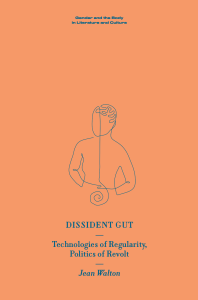Chia Yu Lien// In this and the following posts, I would like to talk about the concept of desire—more specifically, the desire of the bourgeois subject, or in Lauren Berlant’s words, “capitalist subject” (2007, 779). I am not talking about desire as a primary physiological drive, such as the desire to breathe or to eat, nor am I talking about desire for the collective or for solidarity, though these desires may arise occasionally in a mediated form. I am talking about the desire that is produced by capitalism. To distinguish between the desire of bourgeois subjects and other forms of desire, I will start with the discussion of the development of the desiring subject drawing from Max Horkheimer and Theodor Adorno’s classic Dialectic of Enlightenment (2002).
In the second chapter of their book, entitled “Excursus I: Odysseus or Myth and Enlightenment,” Horkheimer and Adorno identify the very early bourgeois subject in Homer’s epic poem The Odyssey. The authors recognize in the bourgeois subject the ability of individuals to alienate themselves from their fellows, their environment and themselves. On the journey toward his homeland and property, Odysseus, a prototypical bourgeois subject, confronts temptations from nature presented by the gods and goddesses. As James Schmidt notes in his reading of the book, “Subjectivity is formed and educated through a confrontation with the world…Odysseus must hold out against powers that threaten to dissolve the still-fragile individuality that he has wrested away from nature” (1998, 832). The rite of sacrifice, for example, is presumed to be an exchange between the priest and the deities. However, in The Odyssey and in many societies, unprivileged people were selected and deified to substitute the priest as sacrificial victims. For Horkheimer and Adorno, this fraud sacrifice is “an act of violence done equally to human beings and to nature” and an embodiment of the principles of the capitalist economy (41). The bourgeois subject makes his fellows and nature calculable, and through calculating and plotting, he deceives nature and transforms it from something formidable to something manageable.
In addition, to alienate himself from others and nature, the bourgeois subject also alienates part of himself, namely his desires. As a developing bourgeois subject, Odysseus desires nature and culture equally. The former manifests in his encounters with Lotus-eaters and Sirens, the latter in his self-preservation and self-renunciation during these encounters. Refusing to eat Lotus, Odysseus preserves himself from a life without labor in which “the bliss of satiety [is] uncoupled from the utility of planned nutrition” (50). Unlike the Lotus-eaters, who signify a lifestyle that is refutable, the Sirens represent natural forces that are irrefutable. In response to these forces, Odysseus has himself bound. On this strategy, Horkheimer and Adorno comment, “By yielding to the song of pleasure he thwarts both it and death. The bound listener is drawn to the Sirens like any other. But he has taken the precaution not to succumb to them even while he succumbs” (46). Odysseus masters nature by giving himself to it and restraining himself from it at the same time. For Horkheimer and Adorno, Odysseus’ act of not giving himself fully to nature signifies his mastery of it. The Sirens’ supremacy is built upon the impossibility of fulfilment. To enjoy their song while not giving himself in, Odysseus defeats nature by transforming himself into a mastering subject and nature into a mastered object.
In the next chapter of Dialectic of Enlightenment, “Excursus II: Juliette or Enlightenment and Morality,” the matured bourgeois subject further alienates herself. To illustrate this point, Horkheimer and Adorno draw on the Marquis de Sade’s book Juliette. In the book, de Sade contrasts the life of two siblings: Justine, the virtuous sister who ended up miserable, and Juliette, an unethical murderer who ended up thriving. Unlike Odysseus, who desires the song of the Sirens, the figure of nature, Juliette, a matured bourgeois subject, desires no sensory stimulation or nature, but rather culture that takes the form of self-mastery and domination. Horkheimer and Adorno point out that, for Juliette, “What seems to matter in such events, more than pleasure itself, is the busy pursuit of pleasure…the scheme of activity counted for more than its content” (69). They continue, “the established bourgeois order entirely functionalized reason. It became a purposiveness without purpose, which for that very reason could be harnessed to any end” (69). In the case of Juliette, she desires the process of calculating and utilizing her sexuality to attract, control and kill men more than the result of these calculations. She desires intellectual pleasure more than unsublimated libido—as Horkheimer and Adorno put it, she finds “the joy of defeating civilization with its own weapons. She loves systems and logic. She wields the instrument of rational thought with consummate skill” (74). From a matured bourgeois subject like Juliette, we can see that the end is separate from the means, the body is separate from the mind.
In other words, bourgeois subjects harness their rationale to achieve their goals, which can be anything. Pleasure becomes an object to be calculated and manipulated. However, pleasure is also an excess. Horkheimer and Adorno refer to it as “nature’s revenge. In it human beings divest themselves of thought, escape from civilization” (82). While the singing of the Sirens that enthralled Odysseus is still powerful, it now plays out in capitalist society via television, radio, and other mass media. According to Horkheimer and Adorno, what was limited to a certain class in late capitalist society has become a total system. Through mass media, bourgeois and proletarians are both drawn into and therefore programmed by the system. Building on this in the following posts, I will talk about the relationship between capitalist subjects (both bourgeois and proletariat), desire, and self-formation.
Works Cited:
Berlant Lauren “Slow Death.” Critical Inquiry 33, no. 4, (2007): 754-780.
Horkheimer, Max, and Theodor W. Adorno. Dialectic of Enlightenment: Philosophical Fragments. Translated by Edmund Jephcott Stanford. Edited by Gunzelin Schmid Noerr. California: Stanford University Press, 2002.
Schmidt, James. “Language, Mythology, and Enlightenment: Historical Notes on Horkheimer and Adorno’s “Dialectic of Enlightenment.” Social Research 65, no. 4 (1998): 807-38.


